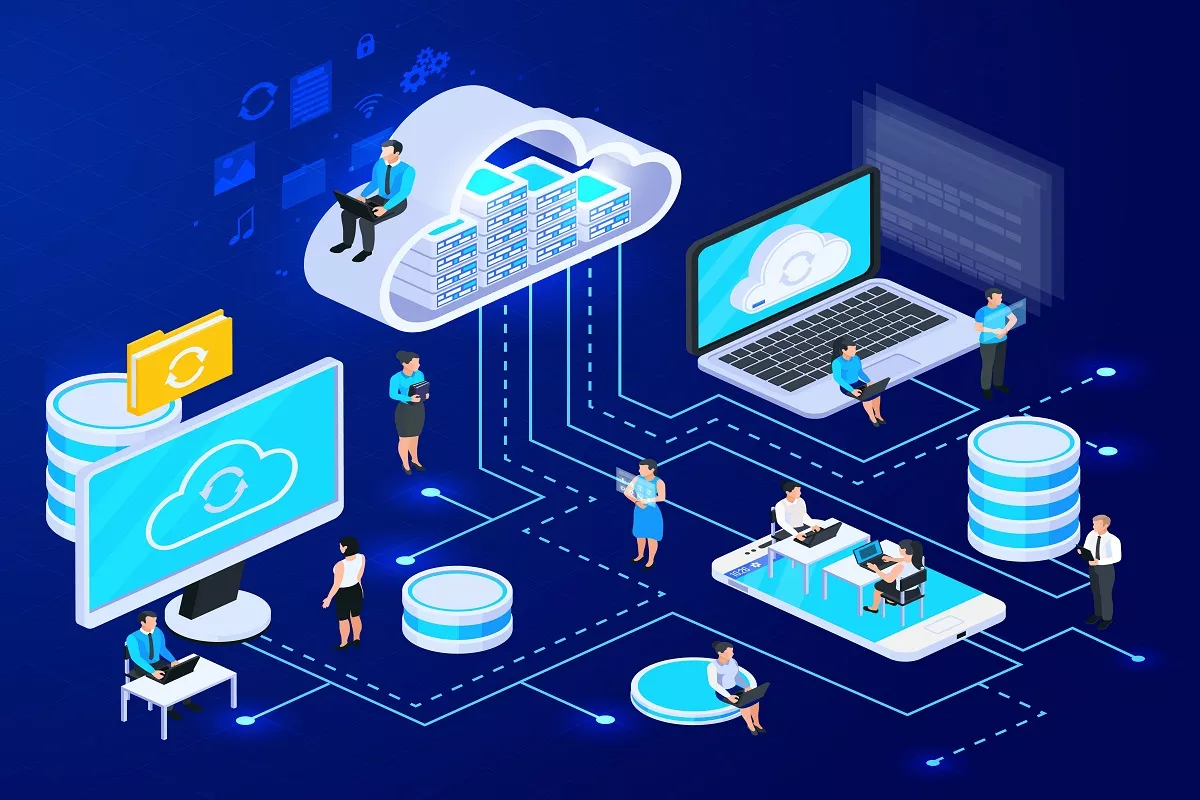Cloud services have reached their consolidation and have given way to technologies to speed up the digital transformation. Or rather, digital business models.
The cloud is a term with a long history associated with the cloud metaphor to represent the telephone network, first, and the internet, later.
Check Also: How to Improve Your Internet Experience
How does the cloud work? Why is it a perfect ally for companies? What are its advantages?
Stay in this post because we will tell you all this and much more.
What are cloud services?
They are infrastructures and software systems managed by expert providers and made available to users through the internet. As a consequence, services are provided that the user does not have to manage, only use and pay exclusively for the time of use. It should be clear that the services offered by the cloud are not installed on your computer and not even on the company’s infrastructure.
In other words, cloud computing is the services that are offered through the ecosystem and internet connectivity. Not only does it allow remote access to file storage resources, virtual servers, remote desktops, processing and other computing resources, which is why it has become a vital alternative for the operation of companies.
Accessing cloud services is an easy task thanks to the work of providers that support companies in the use of cloud computing technologies and services. To do this, they accompany them on their journey through consulting, implementation, migration, operation and management of support centers.
Any computer program that you wanted to use in the past had to be previously installed on the servers and PC’s. By contrast, cloud services are hosted on a server that you can access anytime, anywhere with an internet connection. Beware! Internet access becomes critical because it is the necessary way to reach those resources. As expected, this infrastructure has brought numerous advantages and opportunities for companies, not only due to its storage capacity, but also due to the greater security, scalability and protection of their data.
Did you know that all the systems that you access through the internet without requiring prior installation are considered cloud services? We have all been using them, even if we are not aware of it. If you read your email daily, use the Google search engine or listen to music on Spotify, you are already in the cloud.
How does the cloud work in companies?
All those businesses that join the cloud to access its services do not need anything more than a computer and an internet connection (cable / wifi). This technology allows access to file storage, data processing and software through the Internet. Therefore, it becomes a real alternative to managing personal computers or local servers.
Hiring a full team of IT specialists (internal or external) to operate and maintain the systems. Now, what we have to do is work independently of all those handicaps.
In this scenario, we find 3 categories of cloud services:
Software as a Service (SaaS)
Software vendor distributes it for use by the end user over the internet. For example: Google Drive. It is a model that hosts the company’s software on external servers and any worker can access the applications from anywhere. Its main objective is to provide programs to consumers remotely, without the need to install other elements to make it work.
Platform as a Service (PaaS)
This software itself allows the development of applications, such as business intelligence services or databases, among others. It is ideal for all those developers who focus on the implementation of applications. For example: Google App Engine. Its main objective is to manage all the applications and software of the company from a single solution. Your users with systems technicians.
Infrastructure as a Service (IaaS)
This model represents the availability of hardware resources as an online resource. For example: Microsoft Azure. The company hires you in exchange for a fee or rent to choose memory, processors, hard drive, etc. Its main objective is to provide all the infrastructure that the company needs to support web application servers, storage, etc.
Still manually configuring different software on your own computer? You may need SaaS. Do you invest too much time in the development of configurations, maintenance and updates of the equipment? Perhaps, you should go for PaaS. Or do you need virtualization, backup systems or load balancers? Without a doubt, IaaS is for you as a systems technician.
Tell us your needs and we will tell you which cloud model you need!
The benefits of running the cloud
We have compiled in a small paragraph the main benefits of implementing cloud services in companies:
- Greater security.
- Better access to information.
- Greater scalability and adaptation to needs
- Better coverage for 24×7 services
- Savings in storage and processing costs.
- Companies focus on their business leaving computer resources in expert hands, as if it were just another utility.
What place do you occupy in the cloud? Are you clear about how it works? At Wiki Pluck, we help you clear the way of doubts.
As the driving force behind WikiPluck, I am dedicated to curating and sharing insightful knowledge across a spectrum of subjects. From technology trends to Business advice, WikiPluck strives to be a go-to resource for those seeking to enhance their understanding and make informed decisions.
Join me on this journey of discovery and enlightenment as we pluck the gems of wisdom from the vast landscape of knowledge.

